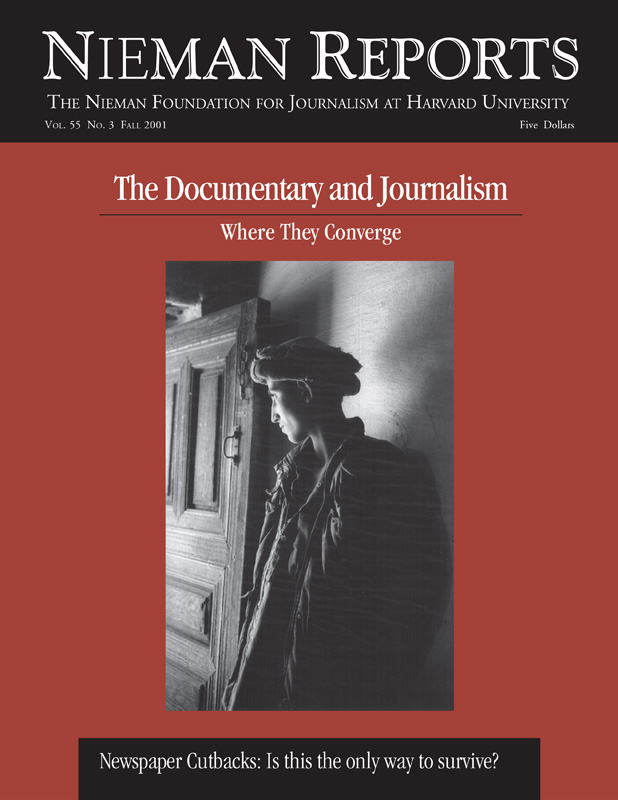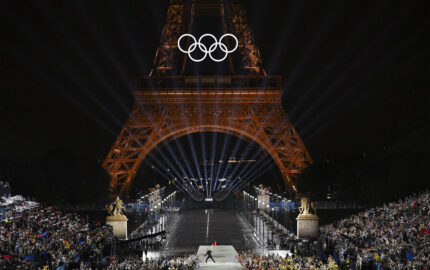
Despite a reputation for puckish behavior, the reason I wore a brown dinosaur costume at The Philadelphia Inquirer in late 1995 had nothing to do with our newsroom antics. Nor did I intend to symbolize acceptance of the muddle-headed view that newspapers are becoming extinct. I needed something in which I might hide while announcing that I would step down from a job I loved as an editor, the hardest thing I’ve ever done. I didn’t want anyone to notice if I started bawling.
One of my stated reasons for resigning was to get out of the way of younger leaders. The Inquirer was full of them: brilliant editors who understood that it took time, resources and encouragement to gather and tell the most important stories, the kind that Gene Roberts used to say oozed rather than broke. The stories Roberts led and inspired had enabled the paper to attract more and more of the most remarkable talents in journalism. An assignment at the Inquirer had become one of the craft’s coveted jobs. A few people left The New York Times or The Washington Post for the Inquirer. Properly ambitious editors like Bob Rosenthal and Butch Ward deserved a chance to lead.
Another reason I gave but soft-pedaled was that it had become less fun being a journalist in Knight Ridder than it ought to have been. After decades as the big newspaper company that cared about quality, Knight Ridder had become more avaricious, determined to rank toward the top rather than in the middle of the most profitable public media companies. At Philadelphia Newspapers Inc., it had become commonplace to be ordered to re-budget several times each year, and we were under pressure to ramp up the margin in 1996 from eight percent to 12.
By the end of 2000, Knight Ridder had figured out how to wring 20 percent out of Philadelphia. There are three ways to get from eight to 20 in five years: develop substantial new sources of revenue, dramatically increase rates, or cut expenses, including staff. There was no huge new revenue source. Rates went up, but not startlingly. That left cuts.
When I contemplated leaving, we thought we were running out of places to trim without doing lasting damage. We were just cutting capillaries then; now they slash arteries. Foreign and national bureaus are dark. Suburban zones tailored to communities of interest across a tapestry of more than 500 municipalities have been supplanted by the cheaper, easier and less relevant countywide zones of the 1980’s. The Sunday magazine, once a showcase for international photojournalism, was merged with the TV book into one publication whose attractive design cannot mask its vapid content. Circulation plummets.
And what of those talented editors? Butch Ward, who rose to managing editor, just took the mid-2001 buyout. With family reasons to remain in Philadelphia, that means he’s probably out of journalism, a tragedy. David Zucchino, who won a Pulitzer as a foreign correspondent and later coached other talented writers through enterprise projects, took the buyout, too. So did Marc Duvoisin, one of the smoothest deadline writers in the business and more recently assistant managing editor for enterprise. As did Gil Gaul, whose analytical skills and single-minded purpose animated his own and others’ ambitious accounts of systemic problems in our society. And while he was no youngster, Don Drake at 66 was still the most energetic apostle of narrative journalism in the business, but he took the buyout and went off to write stage plays.
If those had been the only departures in the only staff reduction at the Inquirer it would have been bad enough. But there were previous buyouts, including one earlier this year that ended the career of Lois Wark, who’d spent a quarter-century nurturing complex and important national enterprise projects and their reporters. That same buyout sidelined Jonathan Neumann, who’d won a Pulitzer as an investigative reporter and for two decades had coached other Inquirer writers through the intricacies of investigative coverage.
Before that, the newspaper lost Steve Lovelady, a gifted story editor whose lasting contribution to journalism will be his editing of groundbreaking investigative reporting of Don Barlett and Jim Steele. Barlett and Steele, of course, also left the Inquirer. So did Steve Lopez, the best local columnist in America. So have fine young staffers of promise, like graphic artist Archie Tse, or foreign correspondent Barbara Demick, or national correspondent Richard Jones, or rising managers like David Tucker and Fran Dauth. All gone in the five years since I’d intended to get out of their way. One of journalism’s top destinations has become a departure lounge.
Here is one way to gauge what has happened to The Philadelphia Inquirer: Every editor whose leadership had a direct effect on reporting that was honored by a Pulitzer Prize is gone—except two, Dorothy Brown, who directs science and medical coverage, and Executive Editor Bob Rosenthal, whose great instinct is for jumping on big stories. Rosey spends much of his time going to meetings.
There still are talented people in the white-spired building on North Broad Street. Many are dispirited, some broken. I once heard a senior vice president of Knight Ridder say, without realizing I was within his hearing, that the company meant to “get control” of Gene Roberts’ newsroom. Roberts has been gone 11 years. Maybe, in the end, the tribute is how long it took.
Jim Naughton, president of The Poynter Institute, spent 18 years as national, metro, managing and executive editor of The Philadelphia Inquirer after 15 years as a reporter for The (Cleveland) Plain Dealer and The New York Times.


